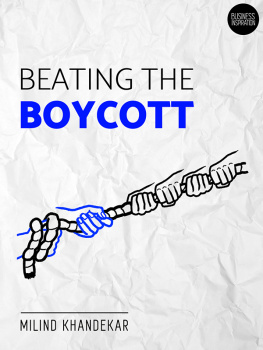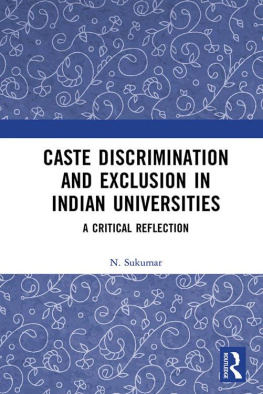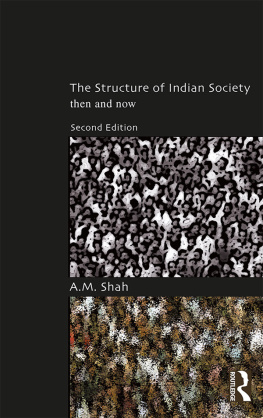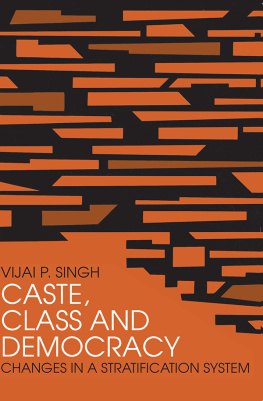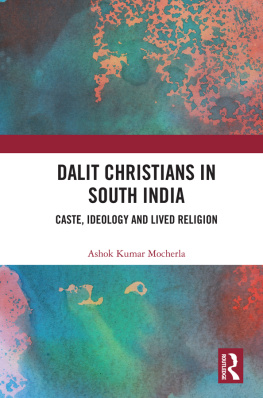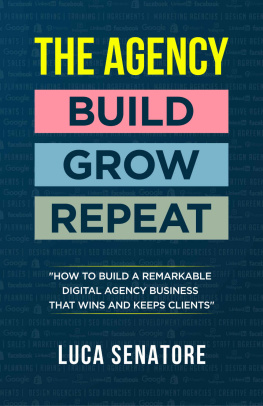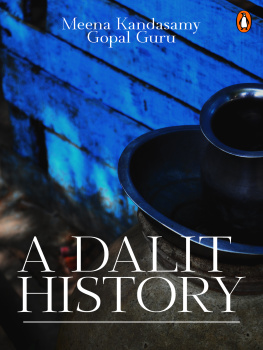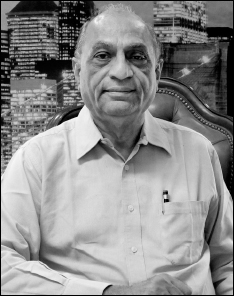PENGUIN
UK | Canada | Ireland | Australia
New Zealand | India | South Africa
Penguin Books is part of the Penguin Random House group of companies whose addresses can be found at global.penguinrandomhouse.com.
Copyright Milind Khandekar 2013
The moral right of the author has been asserted
This digital edition published in 2016.
e-ISBN: 978-9-386-65173-0
This book is sold subject to the condition that it shall not, by way of trade or otherwise, be lent, resold, hired out, or otherwise circulated without the publishers prior consent in any form of binding or cover other than that in which it is published and without a similar condition including this condition being imposed on the subsequent purchaser.
THE BEGINNING
Let the conversation begin...
Follow the Penguin Twitter.com@PenguinIndia
Keep up-to-date with all our stories YouTube.com/PenguinIndia
Like Penguin Books on Facebook.com/PenguinIndia
Find out more about the author and
discover more stories like this at penguinbooksindia.com
PENGUIN
DALIT MILLIONAIRES
Milind Khandekar has over twenty-two years of experience in the field of journalism. He is currently managing editor at Media Content and Communications Services (I) Pvt. Ltd (MCCS), and looks after the editorial content of ABP News, ABP Ananda and ABP Majha. He has previously worked with the Navbharat Times and Aaj Tak. He is a product of the Times Centre for Media Studies, and received the Rajendra Mathur Award for best trainee (Hindi) in 1991.
BEATING THE BOYCOTT
IN 1980, RATILAL MAKWANA had to knock on the doors of several politicians for two long years before he was assigned an agency to sell the products of Indian Petrochemicals Corporation Limited (IPCL). He was thrilledhis hard work had finally paid off. IPCL officials were scheduled to arrive in Bhavnagar in Vadodara, Gujarat, for the agencys inauguration. Everything was on schedule, but when it was time for the function, Ratilals happiness quickly disappeared. Everyone involved in Bhavnagars huge plastic industry had decided to boycott the agency on account of Ratilals caste.
Industrialists found the idea of buying raw material for manufacturing plastic rope from a Dalit to be completely unacceptable. Luckily, Ratilal was able to convince Dilip Shah to buy one bag of low-density polyethylene (LDPE) to symbolically mark the beginning of sales. The only reason Shah agreed was to avoid potential labour trouble by upsetting his own workershis factory was in the Dalit neighbourhood of Kumhara Vada, which was close to Ratilals area of work, and most of Shahs workers belonged to the Dalit community too.
But selling one bag on the day of the inauguration does not make a business thrive. Apart from being a Dalit, Ratilal had to face many other roadblocks while trying to develop a rapport with the plastic industry. So far, in Bhavnagar, ropes had been made out of high-density polyethylene (HDPE) which was imported by licence holders. In India, NOCIL Limited made this product, though it didnt make enough for the markets needs. Despite this scarcity, Bhavnagars industry was still not prepared to use the LDPE that was being produced in Gujarat itself because apprehensions existed that the use of LDPE would adversely affect their machines. When Ratilal offered to give a bag of LDPE to everyone for free, the boycott against him quickly dissolved as the industry eagerly took up his offer.
On trying LDPE, the industry realized that ropes made out of it were both strong and lightweight. Thus, Ratilals agency changed the face of the plastic industry in Bhavnagar. Using IPCLs varied products, the industry started manufacturing PVC sheets, tape, etc., and generated almost 10,000 jobs. Ratilal relates with pride how most of the workers who had been hired to work in the industry were Dalits.
Today, Ratilal Makwana is chairman of Gujarat Pickers Industries Limited which trades in petrochemicals. He is a distributor for Indian Oil Corporation Limited (IOCL) and Gas Authority of India (GAIL), and imports petrochemicals to sell in India. These petrochemicals comprise different polymers that are used as raw resources for manufacturing all kinds of plastic articles. His other company, Rainbow Packaging Private Limited, located in Sanand near Ahmedabad, makes polyethylene film, which is used for packaging milk. His customers include the Delhi Milk Scheme (DMS) and twelve government-run dairies in Haryana, Rajasthan and Kerala. Both these companies have turnovers of about Rs 450 crore.
The Makwana family has been doing business in Gujarat for nearly eighty years now. Ratilals grandfather had initiated a business of making pickers, with which his brothers had also helped. The picker was made of buffalo leather and was used for weaving cloth in power looms. The thread was woven after coming in contact with the pickers fixed on both ends of the loom. No one from any other community was prepared to do this work and in those days it was difficult to find land in Bhavnagar for this purpose.
Bhavnagar was the fiefdom of Raja Krishna Kumar, and Ratilals grandfather or father could not even dream of asking the Raja for land as entering an official premise was forbidden to them on account of their caste. Having moved from Ranpur to Bhavnagar, the family made a living those days from selling cattle feed, which they used to sell to the Maharajas driver among others. The family was so keen to jump-start its business that in 1944, Ratilals father, Galabhai, shared his anxiety with the driver and asked him for his help. The driver asked him to stand outside the royal residence and wave, promising to stop upon Galabhais doing so. The next day, the driver stopped the car as planned and a conversation was initiated, ending with the Raja giving some land to Galabhai for making pickers. This settlement is known as Kumhara Vada today. The Makwana family business picked up after the Second World War, coinciding with a decrease in the import of pickers from England.
After Independence in 1947, the Makwana family continued to be discriminated against. Their picker-making machine was manual and they wanted to obtain a loan from the State Bank of Saurashtra to switch to an automatic machine, but the bank officials were Nagar Brahmins and were not prepared to sanction the loan as that would require them to write the word leather with their own hands on the file. This was unacceptable to a high-caste Brahmin.

